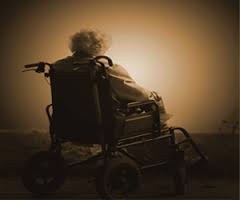Information for Parents & Carers - Adults
The Social Services and Well-being (Wales) Act 2014, which creates a new legal system for social services, came into effect in April 2016.
The Act creates a framework that brings together and modernises the law for social services in Wales, increasing the emphasis on preventative action, bringing people closer to decisions about the services that affect them.
One of the key changes is that the term 'vulnerable adult' has been replaced with the term 'adult at risk', which is defined as an adult who:
- is experiencing or is at risk of abuse or neglect
- has needs for care and support (whether or not the authority is meeting any of those needs), and
- as a result of those needs is unable to protect him or herself against the abuse or neglect or the risk of it.
Being a Carer is one of the most difficult jobs anyone can do. It can be both challenging and rewarding and we believe every carer experiences some difficulties at some point with this. Keeping vulnerable adults safe and free from harm is always a major concern. The resources below are to provide you with relevant information.
We want these pages to be a very useful resource and guide for family and carers regarding keeping vulnerable adults safe from harm. Therefore we would like to invite you to email us with ideas of making the page more informative, user friendly along with sharing any related links that you feel others could benefit from. Your views are important to us.
Email: CWMPAS@pembrokeshire.gov.uk.
What is abuse?

The term abuse covers a wide range of actions such as a deliberate and intentionally unkind act, to someone who does not know how to act appropriately or correctly towards an individual, or someone who does not have the appropriate help and support.
It is important to prevent abuse. If someone suffers abuse, it is important that it is investigated.
Types of Abuse?
- Sexual - rape, sexual assault, sexual acts without consent (for example of someone is not able to give their consent or if they are put under pressure)
- Physical - slapping, pushing, kicking, misuse of medication, inappropriate punishments.
- Verbal - emotional abuse, threats of harm, refusing contact with other people, intimidation.
- Financial - theft, fraud, dishonest gain of property, possessions or benefits.
- Neglect - ignoring the persons medical or physical care needs, failing to get healthcare or social care, withholding medication, food or heating.
- Forced Marriage:
A Forced marriage happens without the full and free consent of both people. Force can include physical force, being emotionally pressurised, being threatened or being a victim of psychological abuse. Forced marriages are not the same as arranged marriages. In an arranged marriage families take the lead in selecting and introducing a marriage partner and the couple have free will and choice to accept or reject the arrangement.
- Honour Based Violence:
This is when a person is punished by their family and/or community for behaving in a way that is believed to have brought shame or dishonour. This type of violence can be distinguished from other forms of violence, as it is often committed with some involvement or co-operation from the family and/or community.
Abuse is anything that goes against a persons human and civil rights. It can take place anywhere, such as in their own home, a care home or a hospital.
If you suspect abuse, Click here.
What will happen if I report abuse?

Social Services will arrange an investigation in line with the procedures under the Wales Interim Policy and Procedures for the Protection of Vulnerable Adults from Abuse. This may involve several agencies, such as the Police and Health Services. Action will then be taken to ensure the adult at risk is protected in the future.
If you are not sure whether there is abuse taking place, it is still better to discuss your concerns with somebody who has the experience and responsibility to conduct an informed assessment than to ignore a situation which may result in someone who is vulnerable being harmed.
Who is a vulnerable adult / adult at risk?

The Social Services and Well-being (Wales) Act 2014, which creates a new legal system for social services, came into effect in April 2016.
The Act creates a framework that brings together and modernises the law for social services in Wales, increasing the emphasis on preventative action, bringing people closer to decisions about the services that affect them.
One of the key changes is that the term 'vulnerable adult' has been replaced with the term 'adult at risk', which is defined as an adult who:
- is experiencing or is at risk of abuse or neglect
- has needs for care and support (whether or not the authority is meeting any of those needs), and
- as a result of those needs is unable to protect him or herself against the abuse or neglect or the risk of it.
Factors of a vulnerable adult
- Is elderly and frail due to ill health, physical disability or cognitive impairment
- Has a learning disability
- Has a physical disability and / or a sensory impairment
- Has mental health needs including dementia or a personality disorder
- Has a long-term illness / condition
- Misuses substances or alcohol
- Is a carer, where the person meets the definition
- Is unable to demonstrate the capacity to make a decision and is in need of care and support.
Mental Capacity Act
The Mental Capacity Act 2005 (MCA) has been introduced to help individuals who cannot make decisions for themselves.
This page offers an overview of the Act, along with further information. We hope you find it useful.
Mental Capacity Act 2005
The MCA affects people who cannot make decisions for themselves due to:
- a learning disability
- dementia
- a mental health problem
- a head injury
- a drug, alcohol or substance addiction, or
- an acute illness, or the treatment for it.
The Act covers major decisions that affect the individual such as how their finances are managed, or whether they should receive medical treatment or not. The Act applies to the family members, friends and Social Care staff who have contact with the individual who lacks capacity.
The Act also allows us to plan ahead in case we lack the metal capacity to make important decisions in the future, following an accident or illness for example.
The key values that underpin the Act are set out in 5 statutory principles:
- It is always presumed that a person has mental capacity.
- A person must be given support to make their own decisions, if possible.
- An unwise or eccentric decision should not be treated as evidence of lack of capacity.
- Any decision made on behalf of someone lacking capacity must be in their best interests.
- Actions taken in respect of a person who lacks capacity must have the minimum effect possible on their basic rights and freedoms.
Decisions of someone else's behalf
For support and guidance with identifying whether a decision needs to be made on behalf of someone who lacks capacity, please download the flow chart.
 For more information please visit the Office of the Public Guardian Website.
For more information please visit the Office of the Public Guardian Website.
Independent Mental Capacity Advocate (IMCA)
An Independent Mental Capacity Advocate helps in specified circumstances offering support and representation to a person who lacks capacity and has no family or friends to speak for them.
Below is information on the IMCA for the Western Bay Region covering Swansea, Neath Port Talbot and Bridgend.
Address:
IMCA Wales,
63 Nolton Street,
Bridgend,
CF31 3AE
Telephone: 01656 649557
Fax: 01656 663397
Email: imca@imcawales.org or imca@mhmwales.org
Website: http://www.imcawales.org/
Deprivation of Liberty Safeguards
The Deprivation of Liberty Safeguards (DoLS) was introduced into the Mental Capacity Act 2005 (MCA) through the Mental Health Act 2007. DoLS are to prevent arbitrary decisions being made that deprive vulnerable people who lack capacity of their liberty.
Sometimes we have to place restrictions on people for their own safety. There are different restrictions ranging for example from a locked door to physical restraint. At some point the degree and intensity of these restrictions become what is legally known as a deprivation of liberty.
A person must lack capacity as defined in the Mental Capacity Act 2005 and be considered in need of deprivation of liberty authorisation.
IF YOU HAVE CONCERNS ABOUT AN ADULT - Click here.